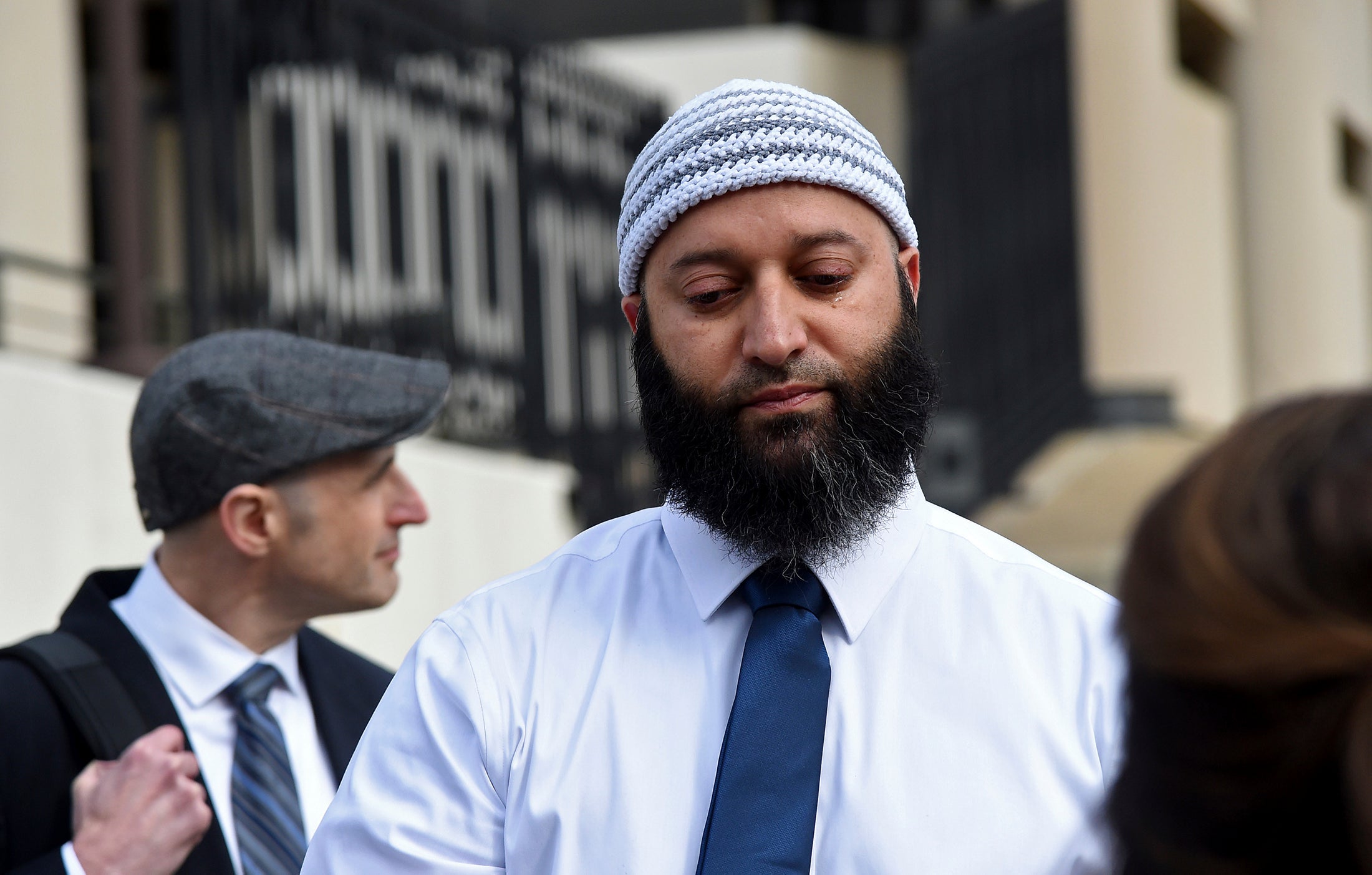Adnan Syed asks appeals court to deny request from victim's family
Lawyers for Adnan Syed are asking Maryland’s highest court to deny a petition to expand the rights of crime victims in post-conviction proceedings

Your support helps us to tell the story
From reproductive rights to climate change to Big Tech, The Independent is on the ground when the story is developing. Whether it's investigating the financials of Elon Musk's pro-Trump PAC or producing our latest documentary, 'The A Word', which shines a light on the American women fighting for reproductive rights, we know how important it is to parse out the facts from the messaging.
At such a critical moment in US history, we need reporters on the ground. Your donation allows us to keep sending journalists to speak to both sides of the story.
The Independent is trusted by Americans across the entire political spectrum. And unlike many other quality news outlets, we choose not to lock Americans out of our reporting and analysis with paywalls. We believe quality journalism should be available to everyone, paid for by those who can afford it.
Your support makes all the difference.Adnan Syed, whose protracted legal odyssey was chronicled in the hit podcast “Serial,” is asking Maryland’s highest court to deny a petition to expand the rights of crime victims in post-conviction proceedings.
Syed, who was convicted in 2000 of killing his high school ex-girlfriend, regained his freedom last year after Baltimore prosecutors found flaws in the evidence presented at trial and a judge agreed to vacate his conviction. But surviving relatives of the victim, Hae Min Lee, appealed the ruling, arguing they didn’t receive sufficient notice to attend the conviction vacatur hearing that set Syed free.
In a March decision, the Maryland Appellate Court agreed, reinstating Syed’s conviction and ordering a redo of the hearing. That decision prompted celebration within the crime victims rights movement and criticism from criminal justice reform advocates who warned of a potential chilling effect on existing efforts to fight wrongful convictions and excessive sentences.
After Syed appealed to the state Supreme Court, the Lee family filed their own petition earlier this month asking the court to give victims an even larger role in such hearings — by allowing them to challenge evidence and cross-examine witnesses. The court has yet to rule on either issue.
As the case drags on, Syed will remain free while the appeal is pending. But there is a chance he could ultimately return to prison, depending on the outcome.
In documents filed Wednesday, Syed’s attorneys asked the court to deny the Lee family’s request to expand victims’ rights.
Maryland law grants victims the “right to speak” in certain proceedings, but allowing more active participation in conviction vacatur hearings would “create a sea change in Maryland courts” by effectively letting them play the role of third-party prosecutor, Syed’s attorneys wrote. That is a question the state legislature should decide, not the courts, the attorneys argued.
In most conviction vacatur cases, prosecutors and defense attorneys are in agreement, with shared concerns about potential innocence. Inserting a victim or their representative into the mix would be “wildly impractical, if not disastrous,” according to Syed’s argument.
“There is nothing inherently suspicious or nefarious about an agreed upon resolution to a case, nor does the fact that the parties agree suggest a need for third party intervention,” his attorneys wrote.
Last September, the victim’s brother Young Lee was notified on a Friday afternoon that the vacatur hearing would take place the following Monday. Lee lives in California, and the hearing would take place in Maryland. When the hearing began, an attorney representing the family requested a one-week postponement so Lee could travel to Baltimore. A judge denied the request but allowed Lee to address the court via Zoom.
During brief remarks, Lee said he felt blindsided by the sudden request to vacate Syed’s conviction. He said the family spent decades thinking his sister’s killer was behind bars, only to find out prosecutors no longer had confidence in the evidence used to convict.
Not long after he spoke, the judge ordered Syed unshackled inside the courtroom.
In addition to receiving insufficient notice to attend the hearing in person, Lee’s attorneys later argued, he should have been afforded a more active role in the proceeding itself. But the state’s intermediate appellate court disagreed, saying the law doesn’t guarantee victims any right to be heard in such hearings, let alone present or challenge evidence.
In their March ruling, which found Lee received insufficient notice and reinstated Syed’s conviction, the judges nonetheless warned that expanding the role of victims would “result in a huge shift in practice.”